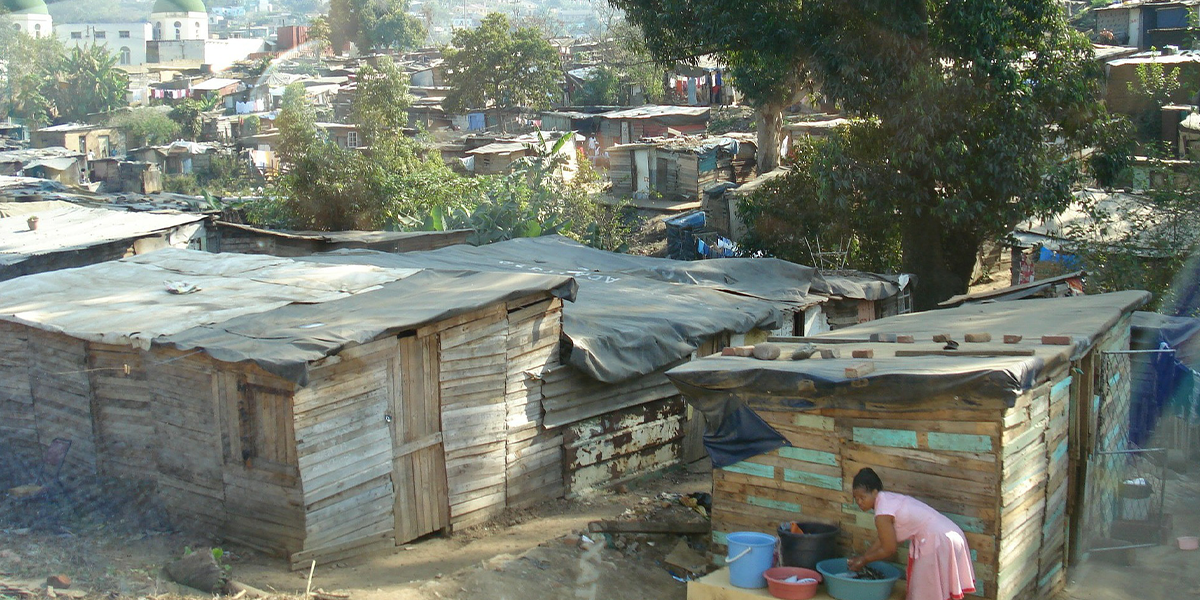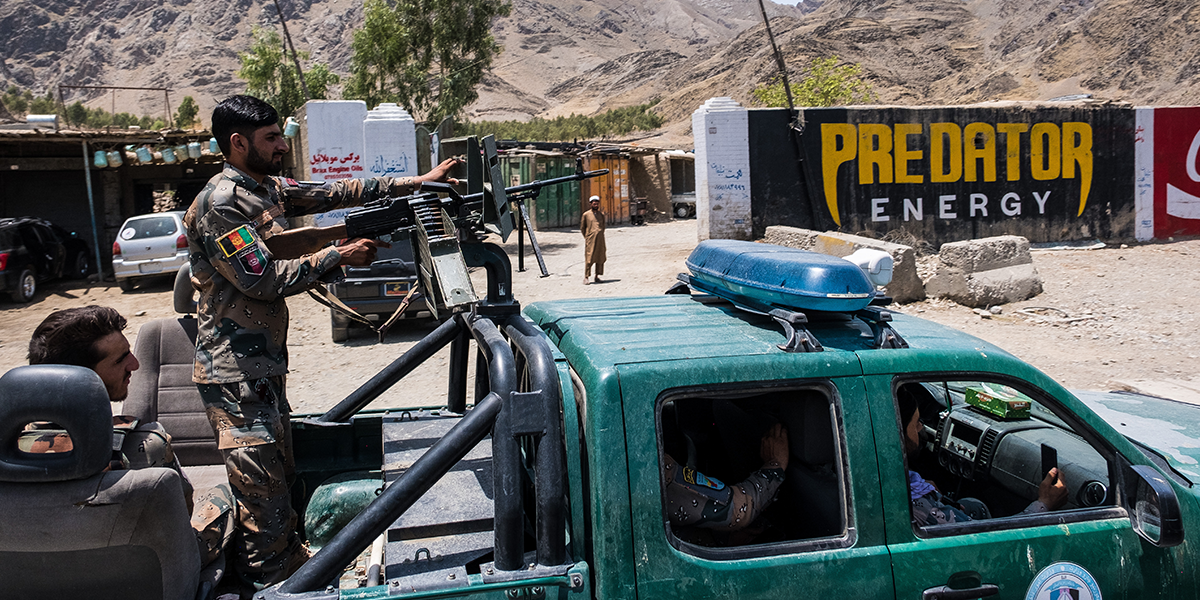News
Averting South Africa's Political Crisis: Will the Basic Income Grant Cut It?
The proposal for universal basic income has been on the table for almost 20 years, with waning enthusiasm from policymakers over time. After recent violent protests exposed mounting political and economic frustrations, President Ramaphosa has brought the proposal back into the spotlight.

The initial proposal in 2002 was driven by the need to address the social and economic prevailing legacy of gross disparities created by an exclusionary apartheid regime. So, it is worth asking: why now? Could this be a desperate attempt to appease the poor, or a genuine readiness to address the deep social divisions and widespread poverty that continue to bedevil the country?
Economic and political frustrations merge
The political unrest that took place over the past two weeks in KwaZulu- Natal and Gauteng, while unlike anything the country has seen in years, came as no surprise. Violent protests have been a frequent occurrence as citizens united against poor service delivery and high crime rates.
However, these are usually contained within specific communities, unlike these protests, which began in KwaZulu-Natal — in response to the incarceration of former president Jacob Zuma — and spread like wildfire throughout the province and into some parts of Gauteng.
The protests quickly morphed into a free-for-all as disgruntled and desperate protesters joined in the widespread looting, physical violence and damage to personal property and crucial business infrastructure including warehouses, transport hubs and oil refineries.
These events cannot be seen outside the context of dire economic hardship and the confounding effects of deep economic inequalities, rampant poverty which has been exacerbated by massive job losses during the coronavirus pandemic. The slow roll-out and absence of relief scheme funds to more than half of those who qualified for it, added salt to the wounds of many whose livelihoods were disrupted by the lockdowns.
The UBI is back on the agenda
In his address to the nation following the unrest, President Ramaphosa announced the reconsideration of a universal basic income (UBI) or the basic income grant (BIG), which the government has been sitting on for almost two decades with very little progress.
Despite countless research studies on financing mechanisms from think tanks and lobbying from non-profit organisations, there has been little consensus on the introduction of a UBI. The last time the proposal was on the table was towards the end of the R350 Covid-19 social relief grants in April this year, when the subcommittee for transformation considered extending the grant rather than implementing BIG.
South Africa is one of few African countries that offer non-contributory social protections. Although the child support grant, available up to the age of 18, and the pensioners' grant for those aged 60 and above have had renowned success in reducing household poverty levels, the large youth demographic (aged 18-35) who are not in education, employment or training (NEETs) has no form of social protection.
The unemployment crisis, although more pronounced among the youth, is not exclusive to them as the current national unemployment rate was 32.6% as of June 2021. The high levels of long-term unemployment among those who have not worked before, and those in the informal sector means many will not have access to the contributory Unemployment Insurance Fund (UIF) either. A UBI is believed to hold the potential to bridge these gaps in the provision of safety nets for the excluded poor.
Pros and cons of a basic income grant
Universal social protections can play a vital role in mitigating the structural inequalities and vulnerabilities in poorer communities. As the social and political unrest has shown, this legacy of unequal economic participation and exclusion is far from over. Many of the country's poorest are still bearing the invisible costs of apartheid through selective development and spatial inequality which imposes extreme work commuting costs, the poorer infrastructure, services and few employment opportunities for those living in townships and rural areas — all of which are externalised on to the poor communities who reside there.
Ramaphosa's announcement showed a recognition of the role that basic income plays in not just managing structural inequalities, but in addressing the deep divisions within society. Basic income is a symbol of national solidarity that could serve as a powerful tool for nation-building. As extreme levels of inequality are increasingly being viewed as a threat to stability and peace, UBI would be a step towards mending these divisions.
Furthermore, experts have shown that basic income support can break poverty cycles, increase the ability to find decent work and decrease detrimental coping strategies such as selling assets and engaging in risky and criminal behaviour.

That being said, some valid objections have been raised to UBI in South Africa, including:
- Exacerbating the country's already massive public debt to GDP ratio;
- The shrinking income tax base to fund the country's current public spending;
- Fears of capital flight;
- Deterring foreign investors in light of increasingly progressive taxes and a wealth tax;
- The sustainability of such a huge drain on public resources; and
- Potential dependency on the grant, thus deterring job-seeking.
As shown by numerous funding mechanism studies and the most recent policy brief by the Institute of Economic Justice, achieving a basic income for all would have to be gradual, meet the food-poverty line (R585), costing would require bold decisions to cut back on extravagant and irregular expenditures (which has proved to not be an easy task) and radically boost tax collection to meet the needed estimate of R158-billion in additional taxes.
Lessons for SA: No stability without inclusive growth and justice
The president was quick to reassure business owners and investors about the stability of the country to win their confidence. While this is crucial, equal reassurance needs to be given to citizens and communities about the state's commitment to restoring law, order and more importantly — justice.
The government has long ignored the role of justice in securing peace and stability, and as frustrations about economic and political injustice build (particularly, the rampant corruption, poor service delivery, shortage of jobs and support for informal workers and small and medium-sized businesses and so on), the more precarious the situation is likely to remain.
Difficult decisions on this issue are inevitable, and a backlash is to be expected regardless of the outcome, but the public, businesspeople and policymakers alike need to see decisive stances and long-term plans for sustained job creation and inclusive economic growth.
This article was originally published by Daily Maverick.


